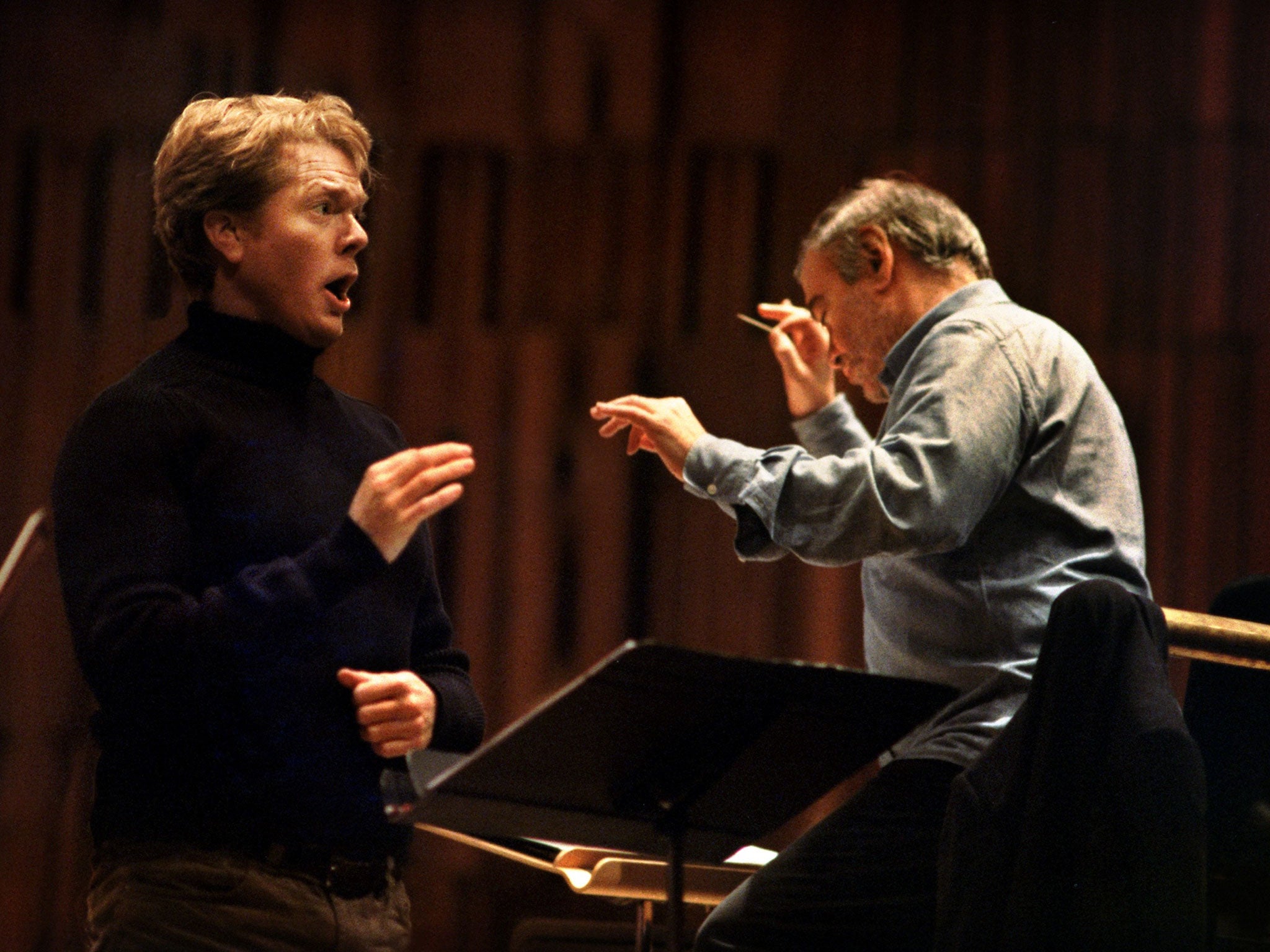IoS classical review: London Symphony Orchestra/ Gergiev, Barbican Hall, London; Die Winterreise, Wigmore Hall, London; Philarmonia/Maazel, Royal Festival Hall, London
We are enjoying an East-West collaboration that was undreamt of only a few years ago

Clarion calls from two eras sounded through a week dominated by Russian music and musicians. On Tuesday came news of the death, at 86, of the soprano Galina Vishnevskaya, whose defection to the United States from Russia in 1974, along with her husband the cellist Mstislav Rostropovich, was a cultural and political coup for the West. On the same day, a fanfare went up for the unveiling of the new Mariinsky Theatre in St Petersburg, reopening in May after a six-year, £400m renovation, for all the world to share. The impact on British music of this cultural thaw is immeasurable. Today, a generation on from the collapse of the USSR, we think nothing of Valery Gergiev, Vladimir Jurowski and Vasily Petrenko presiding over both British and Russian orchestras or of taking new Russian soloists to our hearts. As they sped through the Suffolk lanes in Benjamin Britten's soft-top, the glamorous Rostropoviches could only dream of this.
At the Barbican, Gergiev and the London Symphony Orchestra, in a series pairing Brahms and Szymanowski, teased with a restrained reading of Brahms's Third Symphony, its arching melodies and crescendos kept on a short rein. Turning expectations upside down, they invested in the Polish composer's transcendental Third Symphony the passion often found in the German Romantic. Szymanowski was in his cradle when Brahms's symphony was first performed, and he wrote his own third against the backdrop of the First World War, his response to that devastation being not to lambast the folly of man but to rise above it, depicting with awe the cosmos and the wonder of the healing night. Distinctive English tenor Toby Spence knows all about the dark: this time last year he was diagnosed with thyroid cancer, for which he had surgery in the spring and returned to the operatic stage in New York last month. On this, one of his first return appearances before a home crowd, a new solemnity in his voice and demeanour at the Barbican was unmistakable. He has a giddying schedule ahead: who would not wish him godspeed?
A wretched traveller is the narrator of Schubert's DieWinterreise, and at the Wigmore Hall the bleak tale of the unloved came tumbling from Austrian baritone Florian Boesch, who caught his audience's attention with a conversational confession, the Ancient Mariner of music, dogged by despair. The splendour of Boesch's voice, and a power that does not depend on volume, equip him perfectly for this restless and unrelenting journey. Now resigned and confidential in tone, now indignant and dejected, he appealed to his listener with a hand gesture, a shrug that said, "What could I do?", "What would you have done?" With Roger Vignoles peerless at the piano, painting in the woods, the frost, the organ-grinder's drone, this Schubertian swansong – the composer died a year later, at 31 – contains an unbearable paradox: it is the warmth and beauty of the performance that conjure the miserable chill of lovelessness.
Nothing icy about the Philharmonia under Lorin Maazel at the Royal Festival Hall, where the rising star Daniil Trifonov set about the ears of Prokofiev's colossal Second Piano Concerto in a David and Goliath battle, with exhilarating results. Looking like a fifth Beatle, Trifonov has sprinted across the awards platforms in the past couple of years, scooping among others the Tchaikovsky prize, his passport to appear with the world's top orchestras. Still only 21, he was born the year the USSR died, one of Russia's midnight's children. This concerto, which shocked audiences at its first performance at the tsars' summer palace in 1913, today entertains rather than enrages with its eccentric structure and pitiless demands on the soloist. Trifonov flung everything at it with the vigour of youth, and leapt to victory at the end, returning to the keyboard within seconds to play an encore. It's an exciting, fresh-out-of-the-pan scalding hot talent, and a career to watch, as long as you are not easily dazzled.
Opening with Stravinsky's Firebird Suite, bewitchingly played in the cut-down 1919 version, the concert closed with Rachmaninov's brooding The Rock and Scriabin's power-packed Le poème de l'extase, epic in its scoring, albeit with a tendency to sound as if it is being played backwards. All in all, as bracing as a winter's walk on Nevsky Prospekt, en route to that new Mariinsky Theatre.
Critic's Choice
John Copley's evergreen 1974 production of La bohème returns to the Royal Opera House from tomorrow, with Rolando Villazón and Maija Kovalevska leading the first cast until 18 Jan. The lush design is by Julia Trevelyan Oman, and Mark Elder conducts. The opera is relayed to 360 cinemas worldwide (15 Jan).
Subscribe to Independent Premium to bookmark this article
Want to bookmark your favourite articles and stories to read or reference later? Start your Independent Premium subscription today.

Join our commenting forum
Join thought-provoking conversations, follow other Independent readers and see their replies